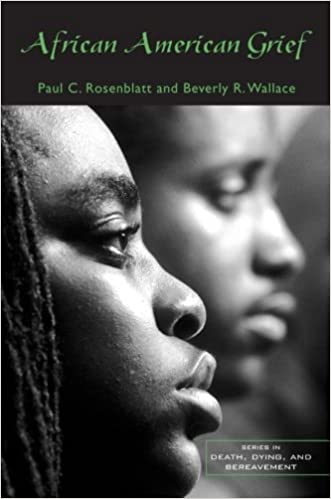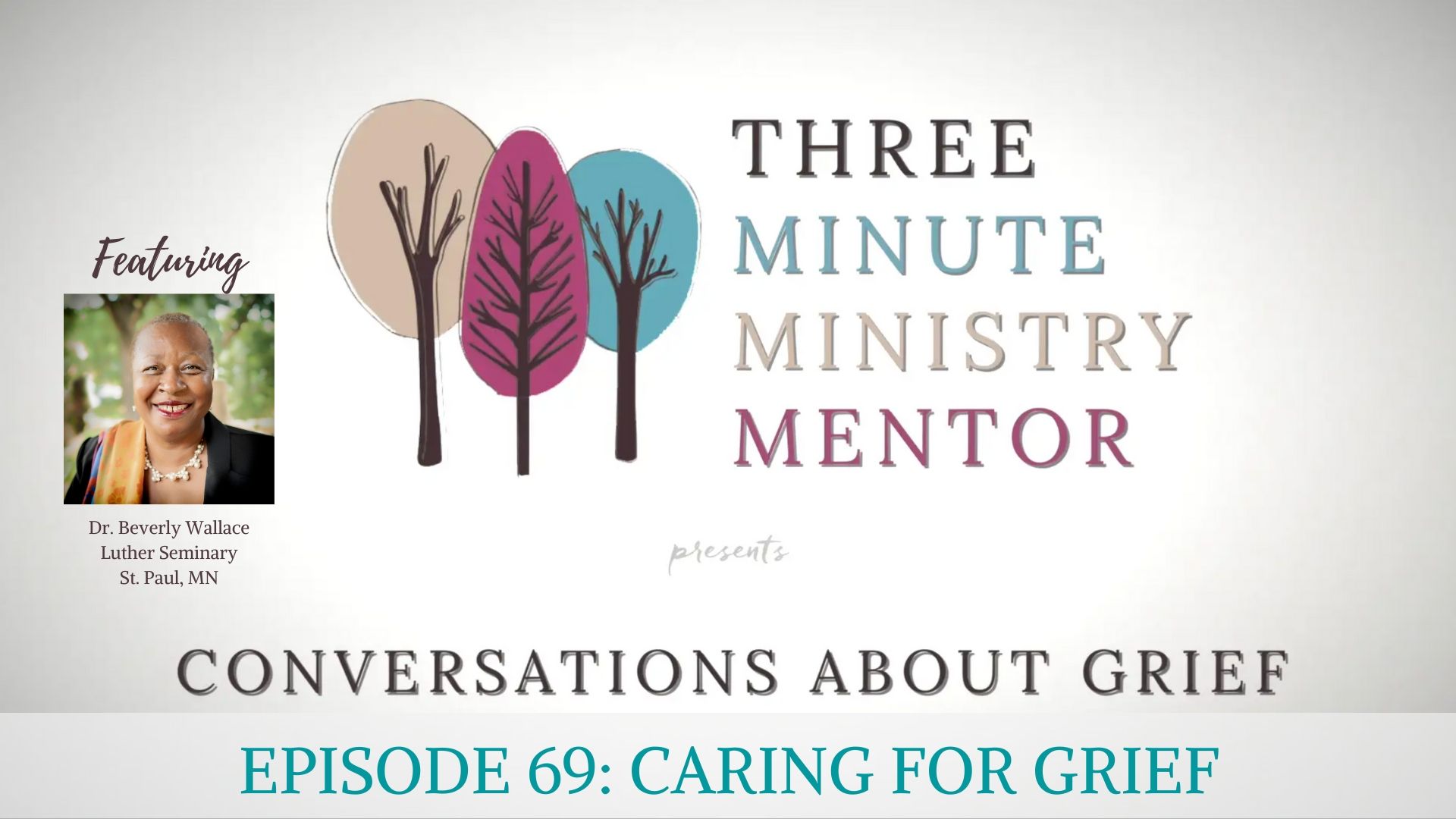Rev. Dr. Beverly Wallace has spent her life caring for grief.
Although she is currently associate pastor of Congregational and Community Care at Luther Seminary in St. Paul, Minnesota, Dr. Wallace did not start out with any intention of being a pastor or a professor of pastoral care.
Many threads of personal experience, research, teaching, and pastoring are woven into her vocation of caring for grief. In our conversation she highlights many of those threads and how they have shaped her vocation.
In my interview with Dr. Wallace, we learn about multiple threads stitched into her work of caring for grief including her mother’s polio as a child, and the community’s healthcare disparities, the loss of her brother, and untimely death of her husband. Personally and professionally, Wallace has given her life energies to caring for grief.
In 1994, Wallace arrived at her last “on-call” night of her first unit of Clinical Pastoral Education. The pager buzzed, and she found herself face to face with a family who lost their infant, Chloe Marie. She remembers the name to this day. The experience of caring for a family through infant loss made a powerful impression on her. Infant death is a very emotionally intense kind of loss, and one Wallace was praying she would not be called upon to attend.
At that moment Wallace said she needed to take a deep breath literally and metaphorically. Her vocational response to the moment was to keep following a path. This led Wallace through ten units of CPE and work as a hospital chaplain.
Personal and Professional Threads of Grief Work
Long before seminary or CPE, Wallace had a professional interest in understanding communities of color. She enrolled in a master’s program to study the healthcare disparities and resilience in African American communities. Her supervisor at University of North Carolina, Greensboro said to her: “You are spending too much time in the church.”
The time she was spending in the church led her to seminary. After seminary, she waited three years for ministry call, a requirement in the Lutheran tradition for ordination. She used the time to hone her skills as a chaplain. She also cultivated her interest in grief as an area of research.
Before she could plunge fully into the work of becoming a CPE supervisor, Wallace’s husband Richard received his own call that uprooted the family from Atlanta, Georgia.
 In her first sojourn to Minnesota, Wallace accompanied her husband Richard to Luther Seminary where he taught pastoral and congregational care. While in the Twin Cities Wallace accepted a spot in a doctoral program at University of Minnesota where she studied Marriage and Family Therapy. One of her advisors in the program, Paul Rosenblatt invited her to join him in a qualitative study of African American grief. The results were published in African American Grief (2005) The book is a major contribution to several fields of study including psychology, nursing and pastoral care. The book was a wonderful resource and encouragement to my class at Union Theological Seminary this spring.
In her first sojourn to Minnesota, Wallace accompanied her husband Richard to Luther Seminary where he taught pastoral and congregational care. While in the Twin Cities Wallace accepted a spot in a doctoral program at University of Minnesota where she studied Marriage and Family Therapy. One of her advisors in the program, Paul Rosenblatt invited her to join him in a qualitative study of African American grief. The results were published in African American Grief (2005) The book is a major contribution to several fields of study including psychology, nursing and pastoral care. The book was a wonderful resource and encouragement to my class at Union Theological Seminary this spring.
The same year the book was published, and while she was still in her doctoral studies, Wallace’s spouse Richard died suddenly and unexpectedly of heart failure. Another thread of loss and grief became part of her story.
Caring for Grief in a Pandemic
During the present pandemic, Wallace sees the essential and ongoing needs for advocacy and liberation, two of the central purposes of pastoral care. We bump into grief at every turn in these days. And for African Americans this season of isolation, grief and loss also amplifies the disparities and inequities that they live with every day. Listen to our interview to hear about the rituals we all need, and the questions that Dr. Wallace says we need to be asking in this time of pandemic grief.
What rituals are you finding helpful in this season of pandemic grief? What questions are you asking about the disparities that are showing themselves in the healthcare, education, and economic situation of the U.S. and the world? We want to hear from you. Please send us your thoughts about pandemic grief!




